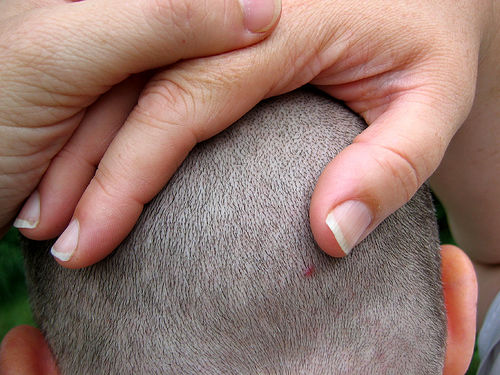
Torah Sparks
Exodus 27:20 – 30:10
Where is Moses? Attentive readers of the Torah have noticed that this Torah portion is the only one in the entire Torah (excluding the Book of Genesis) in which Moses’ name is not mentioned. Various explanations have been offered for this unique phenomenon. I would like to look at how this lacuna changes how we experience our text.
To contemplate what we have before us it is helpful to imagine the standard way that we would have expected Moses to be mentioned. For example, at the very start of the portion we would have been very comfortable to read a form of a verse that occurs countless times in the Torah: “And God spoke to Moses, saying.” The rest of our Torah portion could have continued unchanged. So it is the absence of such an introductory verse that most simply characterizes our present Torah text.
Instead we begin the text: “And you shall command the Children of Israel…” (Ex. 27:20) Of course we know who the “you” refers to. That’s Moses. And we know who the speaker is. It is the Eternal One. We just lack a narrator’s voice introducing the scene.
And that makes a tremendous difference. This means that what we are reading – or hearing – is not being presented by a narrator. What we have here is a kind of unedited Wikileaks of God’s direct speech to Moses. We are, so to speak, pressing our ears against the Gate of Heaven and listening in on Moses’ audience with God. We take part in a scene of double intimacy. God and Moses are in that cloud together, developing a vision for an earthly set of rituals and sacred spaces. And we are that close to being in there with them. Hush! Don’t let them hear you! Don’t interrupt them or intrude on their privacy.
What are they talking about? We listen and begin to understand that there is another layer of intimacy involved. God is telling Moses about how to treat his brother Aaron. About how to draw him close and how to dress him in special clothes. God is explaining to Moses how to endow Aaron, his older brother, with the sacred office of the priesthood.
The only other area of the Torah where Moses is not mentioned is, as indicated above, the book of Genesis. Of course, that is because he was not born yet. But what the entire book of Genesis does mention is the ongoing story of sibling strife. Over and over we read about brothers who cannot dwell together. The long closing tale of the book of Genesis is precisely about the difficult relationship between Joseph and his brothers. It is their dysfunctional relationship that brings the children of Israel down to Egypt. How remarkable, then, that our exodus from Egypt depended on the loving partnership of two brothers, with the younger leading the older. Their love made our redemption possible. Moses agreed to take on the task of leading Israel only after God assured him that his older brother, Aaron, would be delighted to serve him and help him. (Ex. 4:14-16)
Now, once more, we encounter a text missing any mention of Moses’ name. His name’s absence comes precisely from the fullness and immediacy of his actual presence. This is a moment of true intimacy. This is the moment when God, in urgent but hushed tones (we can barely make out the words!) tells Moses to embrace his older brother as the sacred servant that Aaron has always been. God describes how Moses will gently anoint his faithful brother Aaron (Ex. 29:7). And that delicious moment will live on in the Jewish imagination for all time as one of the sweetest moments in human experience: “Look how good and pleasant it is for brothers to dwell together! Like the good oil on the head, dripping onto the beard, the beard of Aaron, that drips down to the hem of his garments!” (Psalm 133:-2)
Shabbat Shalom
Rabbi David Greenstein
![]()
Subscribe to Rabbi Greenstein’s weekly d’var Torah
image: “My Hand. Her Hand. Her Head.” © Nic McPhee used with permission via Creative Commons License
- Toby Stein: In Memoriam - Thu, Feb 8, 2024
- Faithfulness and Hope: Parashat Sh’lach - Thu, Jun 23, 2022
- Past Their Prime: Parashat B’ha`a lot’kha - Thu, Jun 16, 2022
